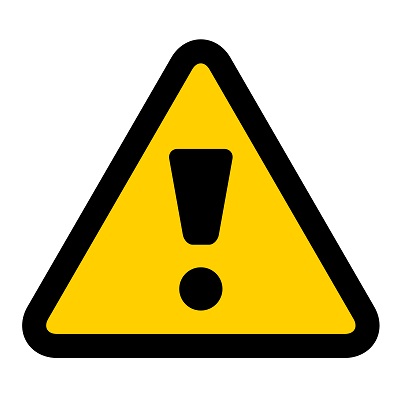Evaluating Risks and Heeding Warnings
by Kathy Slattengren, M. Ed., Priceless Parenting (sign up for monthly parenting newsletter and receive 20+ printable charts for kids and parents)
(listen to article read by the author)

Taking risks is part of living. Your kids need to be able to take reasonable risks to learn and grow. For example, your children would never learn to walk if they weren’t able to risk falling.
Since you can’t keep your kids in some sort of safety bubble, what can you do to help prevent them from being hurt? You can help them think through likely consequences of their choices.
By forewarning your kids, you prepare them. When they are young, you warn them about everything from not touching a hot stove to never getting in a car with a stranger. When they are older you warn them about not drinking and driving. You love them and are trying to protect them from danger. However, it’s up to them to decide if they will heed your warnings.
Giving Warnings
Your kids will sometimes ignore your warnings and learn from the results. They might not hold on tightly to their helium balloon and it sails away. Perhaps they decide to play video games instead of study for a test and get a poor grade. These are natural consequences of their choices. They learn from experiencing these consequences … although some kids will need lots of examples!
How about when the consequences are bigger? Regular conversations involving true stories can help. Your local newspaper is an excellent source of stories about kids facing serious consequences.
For example, the Seattle Times article
“Video games and online chats are ‘hunting grounds’ for sexual predators” describes a 13-year-old who was playing Minecraft and Fortnite. His mom felt comfortable because he was playing in a family room where she could see him. The article goes on to say:
“But about six weeks later, Kate saw something appalling pop up on the screen: a video of bestiality involving a young boy. Horrified, she scrolled through her son’s account on Discord, a platform where gamers can chat while playing. The conversations were filled with graphic language and imagery of sexual acts posted by others, she said.
Her son broke into tears when she questioned him last month.
“I think it’s a huge weight off them for somebody to step in and say, ‘Actually this is child abuse, and you’re being abused, and you’re a victim here,’” said Kate.”
You can use a story like this to help warn your kids about sexual predators. During your conversations, explain about how sexual predators operate:
- They often pretend to be kids.
- They ask for personal information like your name and address.
- They pretend they know what sites you’ve visited. They might claim they know you’ve been watching porn and will tell your parents if you don’t do what they want.
- They attempt to trick kids into sharing sexually explicit photos or videos.
- They may use threats like telling you they will kill your family if you don’t comply.
Also let them know they can always come to you when they are uncomfortable or scared. You will not blame them; you will try to help them.
Heeding Warnings
Which warnings are worth paying attention to? Warnings involving significant physical harm or death are worthy of serious consideration.
Simply crossing the street there is the risk you will be hit by a car. How do you protect your kids from this risk? You teach them to look both ways before crossing. If you are in a city with cross walks, you teach them to use the crosswalk. You also warn them that just because they have the “walk sign” on, cars might still go through the intersection. It’s up to them to stay vigilant to avoid getting hit.
Do you put more weight on warnings from people who have expert knowledge? Probably so. When
New Zealand’s most active volcano on White Island erupted on December 9, 2019, geologists had been giving warnings of increased volcanic activity.
When do warnings like these become legal requirements that tour companies must obey? Tourists had been visiting that volcano for years. The tour company had a vested interest in making money taking people there.
Suffering Consequences
The geologists could not absolutely say when the volcano would erupt. They were providing warnings to the best of their knowledge. Ignoring these warnings resulted in several deaths and serious burns.
Many scientists have been sounding alarms around climate change. It is 16-year-old Greta Thunberg who has captured the spotlight by articulating the serious impact. Greta’s clear, concise insistence that we must act now to protect our earth has resonated with many. Her unfaltering determination to raise this issue with world leaders has led to Greta being named TIME's 2019 Person of the Year.
Greta paints a picture of hope if we heed the warnings. In the video
“TIME 2019 Person Of The Year: Greta Thunberg”, she states "We often talk about these negative tipping points. Things we can't change. There could also be positive tipping points. Like when people decide they've had enough."
Reducing the biggest risks require working together. Whether it’s coming up with ways to reduce carbon emissions or gun violence, it is a group effort. Hopefully we are reaching positive tipping points where we will take action to reduce the risks for all children.